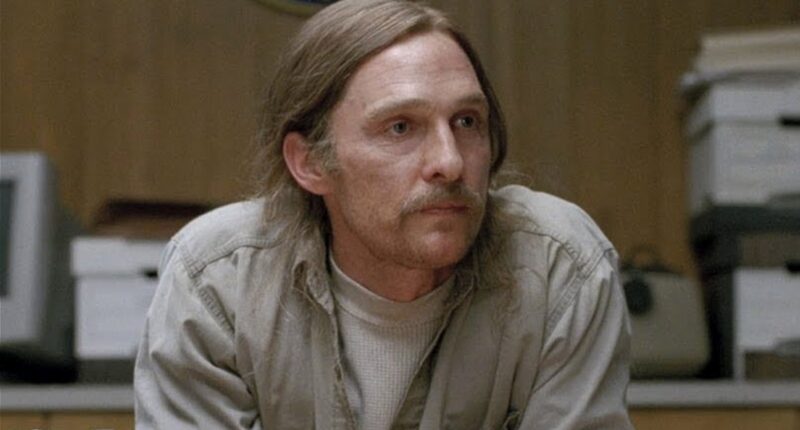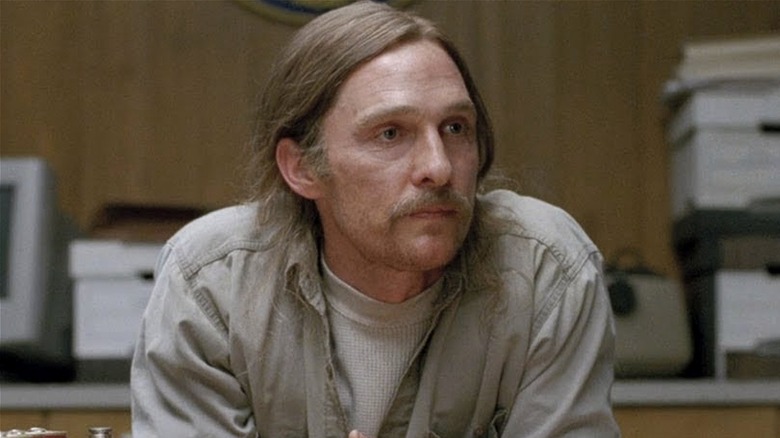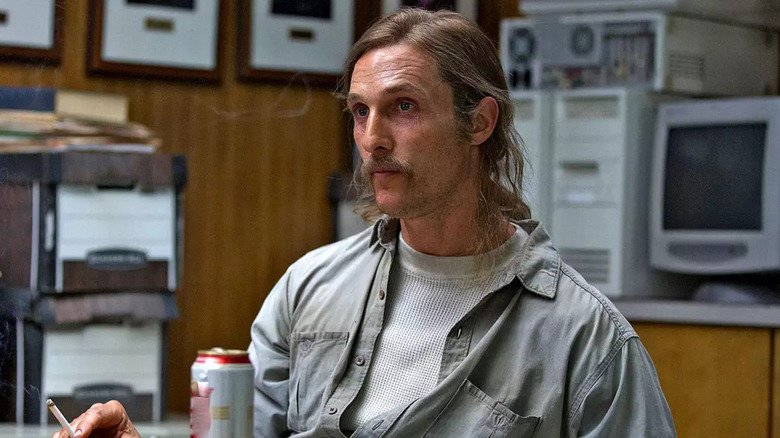Share this @internewscast.com
In Season 1 of “True Detective,” we are introduced to Rustin “Rust” Cohle, played by Matthew McConaughey. Rust is a brilliant yet profoundly cynical character, initially suspected of being a serial killer. He recalls the final words of Reggie Ledoux, a drug manufacturer portrayed by Charles Halford, which introduce the philosophical theme of Friedrich Nietzsche’s eternal recurrence. Rust reflects, “Someone once told me time is a flat circle. Everything we’ve ever done or will do, we’re gonna do over and over and over again. And that little boy and that little girl, they’re gonna be in that room again. And again. And again. Forever.”
Rust’s recollection isn’t entirely accurate. The actual words from Ledoux were, “I know what happens next… you’ll do this again. Time is a flat circle.” Rust’s sarcastic retort, “What is that, Nietzsche?! Shut the f*** up,” underscores the deep philosophical roots in their conversation. Both characters are indeed echoing Nietzsche’s theory. The idea of eternal recurrence posits that while human existence is infinite, life itself is not. Therefore, individuals are destined to repeat their actions and experiences endlessly, encountering the same people and events repeatedly.
This concept is drawn from Nietzsche’s work “Thus Spoke Zarathustra.” Through the voice of Zarathustra, Nietzsche presents this idea as potentially positive, provided one’s life is meaningful enough to warrant endless repetition. If so, the rewards could be immense. However, Rust, burdened by years of suffering, can only perceive the bleak aspects of such a theory.
Unlike Nietzsche, who might find the notion of reliving the same moments intriguing, Rust views this eternal recurrence as a nightmare. Given his traumatic past and experiences, his perspective is understandable. Rust’s expertise becomes his curse, trapping him in a perpetual loop of heinous crimes and flawed justice. This cycle leads him into depression, alcoholism, and PTSD, driving him into isolation and reinforcing the idea that, for him, time is indeed a flat circle.
By the conclusion of Season 1, Rust’s faith in justice is somewhat restored when he and his partner Marty uncover the truth behind Dora’s murder. They discover that Errol Childress, played by Glenn Fleshler, along with the Tuttle family cult, are responsible for the crimes wrongly attributed to Rust. With Errol’s demise and Rust’s reunion with his family, a sense of order is reinstated. Despite the world’s imperfections, Rust finds a flicker of hope and a brighter future.
Rust Cohle sees Friedrich Nietzsche’s statement as a negative one
While Friedrich Nietzsche himself might find the notion of reliving the same events the same way every time fun, Rust sees the Nietzschean concept of an endlessly reoccurring life as nightmarish. Considering what he’s seen and done, that’s not surprising. Rust’s success traps him; life becomes an endless cycle of horrible crime — horrible criminal — application of sometimes-faulty justice. He falls into depression, alcoholism and PTSD, isolating himself from everyone and everything. Time does, indeed, become a flat circle for him.
At the end of Season 1 of “True Detective,” Rust’s belief justice is restored when he and Marty finally manage to figure out who really killed Dora. It turns out her murder — along with the deaths the cops were trying to pin on Rust — are the handiwork of Errol Childress (Glenn Fleshler) and the Tuttle family cult. Errol is killed, Rust is reunited with his family and the future generally looks brighter — and order has prevailed, in spite of any imperfections Rust or the world at large might have.










